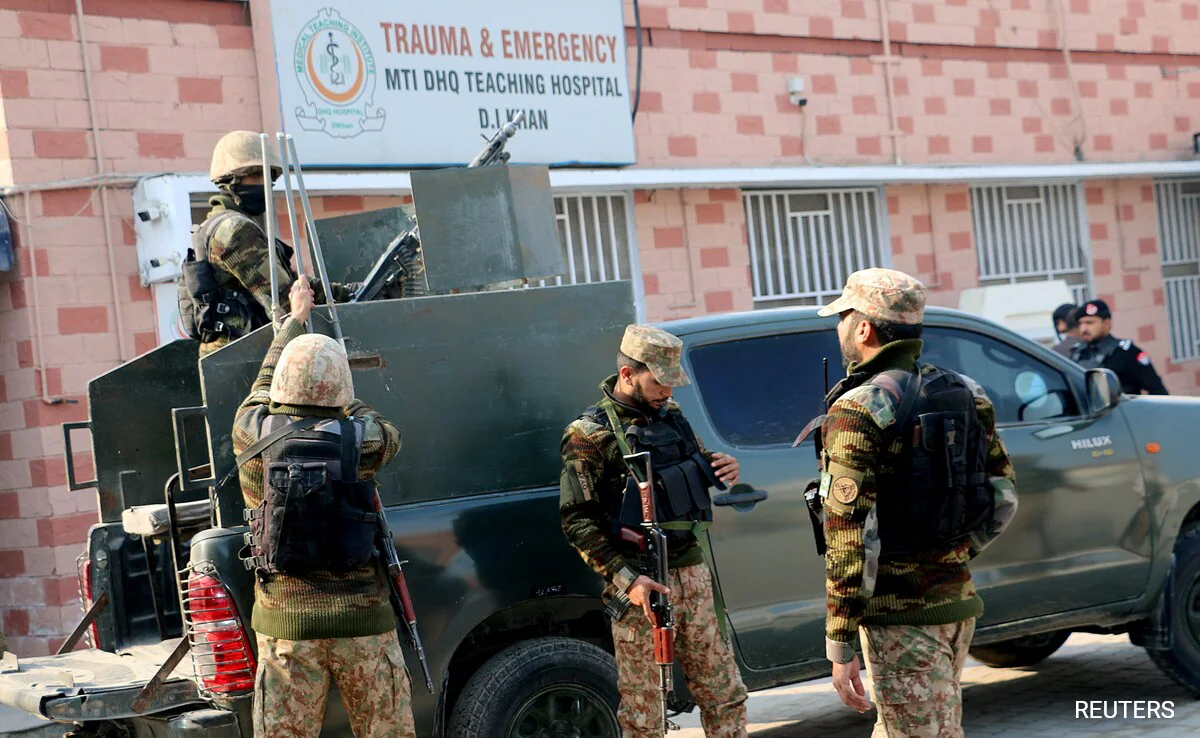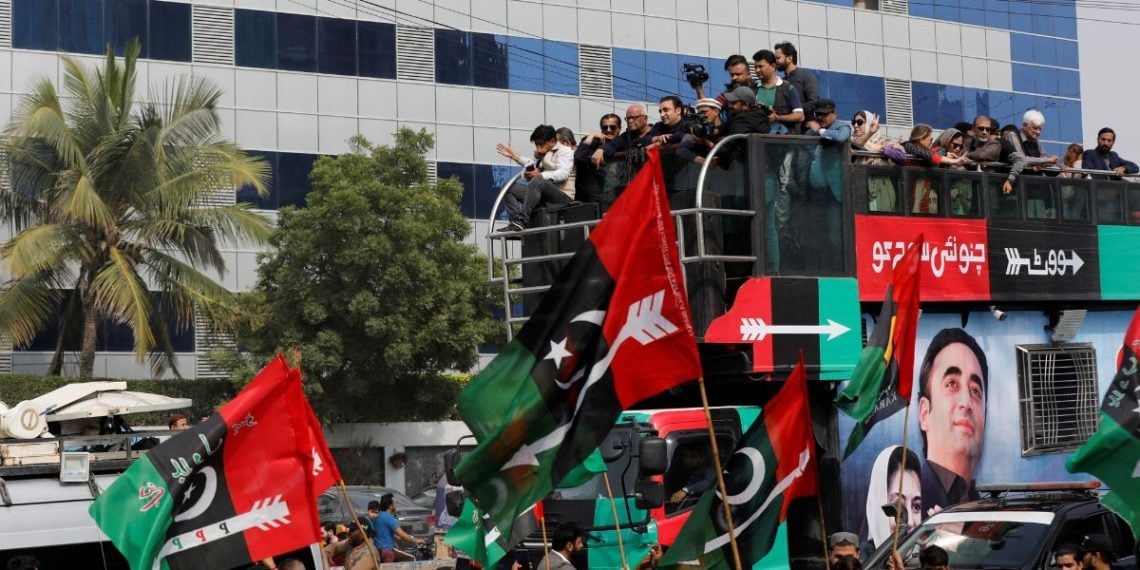In Pakistan’s general election, violence marred the democratic process as at least five people were killed in militant attacks. These incidents prompted the government to suspend mobile phone services temporarily and close some land borders to maintain law and order.
The interior ministry’s actions followed two explosions near electoral candidates’ offices in Balochistan, claiming the lives of 26 individuals. Islamic State claimed responsibility for these attacks. Despite the deployment of thousands of troops and the temporary closure of borders with Iran and Afghanistan, violence persisted.
Four policemen were killed in a bomb blast in Dera Ismail Khan, while another person died in a shooting in Tank. Grenade attacks were also reported in Balochistan, though polling remained unaffected. Security concerns were further heightened when a candidate from North Waziristan reported local Taliban threats to polling stations.

Despite these challenges, long queues formed at polling stations early on, demonstrating the citizens’ determination to exercise their democratic rights. However, the election takes place amidst broader challenges, including economic crisis and political polarization, leading to uncertainty about the outcome.
Unofficial results are expected shortly after polls close, with analysts anticipating a tense and complex political landscape. If no clear majority emerges, addressing multiple challenges, including seeking a new IMF bailout program, will prove difficult for the incoming government.





